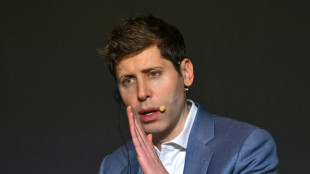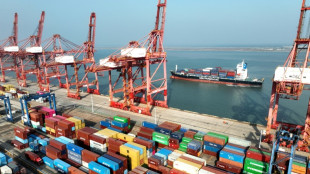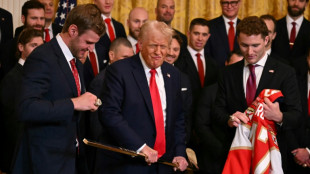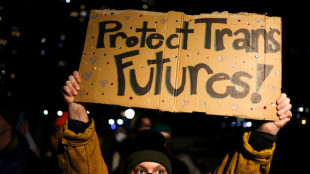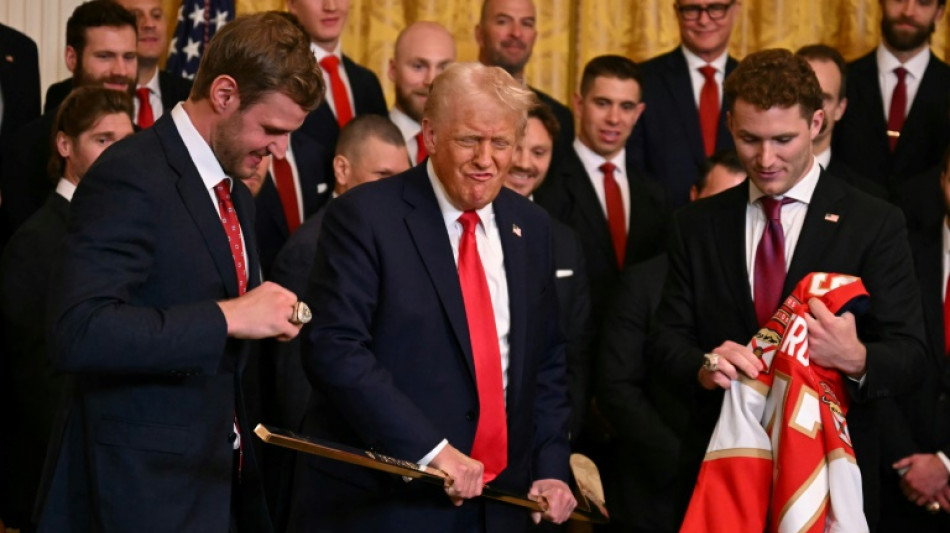

Trump halts Canada and Mexico tariffs, China still targeted
US President Donald Trump delayed the start of tariffs on neighbors Mexico and Canada for a month Monday -- but China remained in the firing line for levies that are putting the global economy on edge.
Mexican President Claudia Sheinbaum and Canadian Prime Minister Justin Trudeau both struck last-minute deals with Trump to tighten border measures against the flow of migrants and the drug fentanyl into the United States.
Global stock markets had slumped as Trump's threat of sweeping 25 percent levies on exports from Canada and Mexico to the United States sparked fears of a global trade war.
Trump said that after "very friendly" talks with Sheinbaum he would "immediately pause" the tariffs on Mexico, and that his counterpart had agreed to send 10,000 troops to the US-Mexico frontier.
Tensions appeared higher between the United States and Canada -- but after two calls with Trudeau, Trump said on Truth Social that Canada had "agreed to ensure we have a secure Northern Border, and to finally end the deadly scourge of drugs like Fentanyl."
Trudeau said Canada would deploy nearly 10,000 frontline officers to help secure the border, list drug cartels as terrorists, appoint a "Fentanyl Czar" and crack down on money laundering.
It was not clear the real extent of the changes on the Canadian border, given that authorities said in December they already had 8,500 personnel deployed.
- Stocks slump -
But China is still due to face a further 10 percent duty on top of existing levies.
The US president said last-minute talks between Washington and Beijing were due in a bid to reach an agreement.
His spokeswoman Karoline Leavitt told Fox News "there is a plan for him to talk to President Xi in the next 24 hours."
Canada, China and Mexico are the United States's three biggest trading partners.
Wall Street's three main indices fell sharply in early deals, but clawed back ground after Trump's announcement of the Mexico deal. The London, Paris and Frankfurt stock markets finished in the red.
The White House said earlier there had been a "heck of a lot of talks" over the weekend.
"This is not a trade war, this is a drug war," National Economic Council Director Kevin Hassett told CNBC, complaining that "the Canadians appeared to have misunderstood the plain language."
However, US government figures show that only a minimal quantity of drugs enter via Canada.
- 51st state? -
Canada had vowed to respond strongly to the tariffs.
Canadians have booed the US national anthem at sporting events, cancelled holidays in the United States and boycotted American products.
Its most populous province Ontario on Monday had banned US firms from bidding on tens of billions of dollars in government contracts -- and dumped a deal with Trump ally Elon Musk's Starlink.
Trump has upped the pressure recently by calling Canada's existence into question -- once again advocating on Monday for it to become the 51st US state.
A political crisis in the Canadian government over Trump's tariff threats led to Trudeau announcing earlier this month that he would resign too. Canadians now face elections as early as April.
Mexico has meanwhile been under heavy pressure to secure its border with the United States as Trump vows a massive crackdown on undocumented migrants.
The US president -- who has said that the word "tariff" is the "most beautiful word in the dictionary" -- is going even further in his second term on the levies than he did in his first.
He has insisted that the impact would be borne by foreign exporters without being passed on to American consumers, despite most experts saying the contrary.
But the billionaire 78-year-old did acknowledge as he returned from a weekend at his Florida resort Sunday that Americans might feel economic "pain."
何-H.Hé--THT-士蔑報

